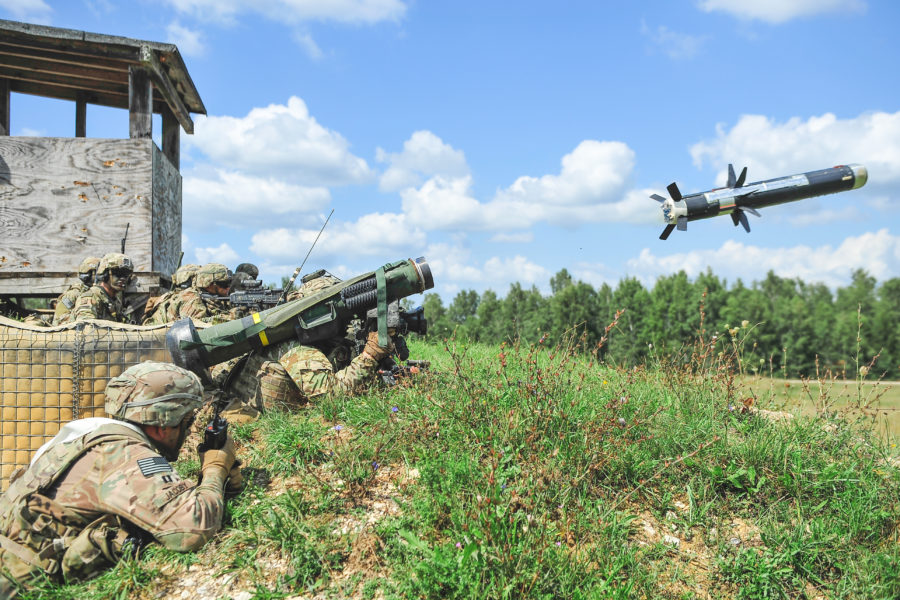L3Harris announced plans Dec. 18 to acquire Aerojet Rocketdyne, the only U.S. maker of certain propulsion components for several key American military and space assets for $4.7 billion.
The deal, which requires final approval from the Federal Trade Commission, would secure L3Harris as one of the Department of Defense’s prime contractors. It would also as close a multiyear saga in the aerospace industry after Lockheed Martin walked away from a deal to buy Aerojet Rocketdyne amid scrutiny from the FTC and some members of Congress.
Aerojet is an important propulsion supplier, powering everything from anti-tank weapons to NASA rockets. But the company’s hand in many of America’s most sensitive weapons and space assets caused trouble for the plans to sell its business to a larger contractor amid fears of consolidation in the defense industry. Aerojet Rocketdyne has faced internal upheaval since the Lockheed Martin deal fell apart.
The deal is subject to regulatory approval, something that has tripped up previous attempts to sell the company. Lockheed Martin previously attempted to buy Aerojet for $4.4 billion, but the Federal Trade Commission filed suit, arguing a takeover by the largest defense contractor would consolidate the industry too much. As a result, Lockheed Martin walked away from the deal in February.
Since the Lockheed Martin deal went awry, Aerojet’s products have gained an international spotlight—the company produces rocket motors for several products key to U.S. aid to Ukraine, including the Stinger man-portable air defense system and the GMLRS rockets used by the HIMARS system, which Ukraine has used to great effect in pushing back Russian forces. It also powers some hypersonic systems the U.S. military is pushing to field.
Elected leaders and Department of Defense officials have long expressed concern over the consolation of the defense industry, especially in the missile sector.
Aerojet Rocketdyne is the “nation’s last independent supplier of key missile inputs,” Bureau of Competition Director Holly Vedova said when the FTC sued to block the Lockheed Martin deal.
While L3Harris is one of the Pentagon’s six biggest defense contractors, it does not have a major foothold in the growing tactical missile, strategic missile, hypersonic weapons, missile defense, or space propulsion markets, noted Jim McAleese, a defense industry analyst. That makes the deal more likely to go through.
In a release announcing the deal, L3Harris acknowledged the Department of Defense’s broad concerns over the defense industrial base, which has faced issues due to COVID-19, supply chain disruptions, and demand spurred by the ongoing Russian invasion of Ukraine.
“We’ve heard the DOD leadership loud and clear: they want high-quality, innovative and cost-effective solutions to meet both current and emerging threats, and they’re relying upon a strong, competitive industrial base to deliver those solutions,’ L3Harris CEO Chris Kubasik said in the release.
Rather than weaken the industrial base through consolidation, the move will be good for American security, the companies insisted.
“The acquisition will ensure the defense industrial base and our customers will have a strengthened merchant supplier to effectively address both current and emerging threats–and promote scientific discovery and innovation–through targeted investment in advanced missile technologies, hypersonics, and more,” the companies said in a joint statement.
